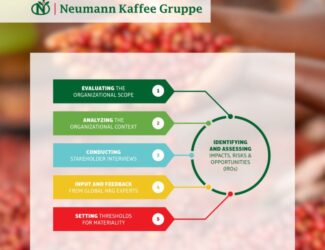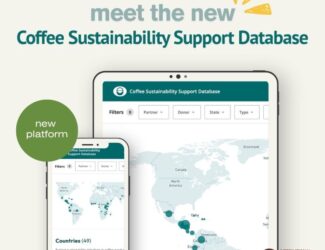
G7 Commitment to Coffee Sustainability and Economic Development
At the recent G7 summit in Apulia, world leaders reaffirmed their commitment to sustainable development with a strong focus on coffee. Recognizing the critical role coffee plays in the economies and livelihoods of many countries, the G7 has launched a significant initiative aimed at bolstering the resilience and sustainability of the coffee sector.
G7 Private-Public Initiative on Coffee The G7 leaders announced the formation of a comprehensive private-public initiative designed to enhance the sustainability, productivity, and economic viability of coffee production worldwide. This initiative aims to support smallholders and family farmers, who are the backbone of the coffee industry, by promoting sustainable practices and ensuring fair economic returns.
Key Components of the Initiative:
- Policy Advancement: The G7 will work with global partners to develop policies that support sustainable coffee production. This includes addressing environmental challenges, such as deforestation and climate change, which significantly impact coffee-growing regions.
- Sustained Investments: The initiative will drive investments into the coffee sector, particularly focusing on research and innovation. This includes exploring new coffee varieties that are more resilient to climate change and pests.
- Partnerships and Blended Finance: Leveraging multi-stakeholder partnerships, the initiative will harness both public and private finance to support coffee farmers. This blended finance approach aims to maximize the impact of investments and ensure long-term sustainability.
- Circular Economy: Efforts will be made to promote a circular economy within the coffee sector, enhancing value addition and reducing waste throughout the coffee value chain.
- Global Private-Public Fund: The feasibility of establishing a global private-public fund on coffee will be examined. This fund would aim to provide financial support for sustainable coffee initiatives, ensuring that resources are available to address both immediate and long-term challenges.
Support for Smallholders and Family Farmers The initiative places a strong emphasis on supporting smallholders and family farmers. By providing access to better resources, education, and financial support, the G7 aims to empower these farmers to adopt sustainable practices, improve productivity, and enhance their economic resilience.
Climate Resilience and Environmental Sustainability Addressing the climate-food systems nexus is a critical component of the initiative. The G7 leaders highlighted the need for coherent policies and investments that not only enhance the sustainability of coffee production but also contribute to broader climate goals. This includes initiatives to improve soil health, promote sustainable farming practices, and support the development of climate-resilient coffee varieties.
Global Cooperation The G7’s commitment to coffee is part of a broader effort to support sustainable development globally. By working with international partners, including the African Union and other global stakeholders, the G7 aims to align this initiative with existing global and regional plans for sustainable agriculture and food security.
Conclusion The G7’s commitment to coffee sustainability marks a significant step towards ensuring the long-term viability of the coffee sector. By supporting smallholders, promoting sustainable practices, and driving investment, the initiative aims to create a more resilient and equitable coffee industry that can thrive in the face of global challenges.
This renewed focus on coffee highlights the importance of this crop not only as a global commodity but also as a vital source of livelihood for millions of people around the world. The G7 leaders’ commitment is expected to drive positive change and foster a more sustainable future for coffee production.
Additional Commitments from the G7 Leaders The G7 leaders also emphasized the importance of addressing the broader issues of sustainable development, food security, and climate resilience. Notable initiatives include:
- The Apulia Food Systems Initiative (AFSI), which aims to overcome structural barriers to food security and nutrition, building resilient and productive agriculture and food systems globally.
- Energy for Growth in Africa Initiative, launched alongside several African partners, to drive clean energy investments across the continent, supporting sustainable and inclusive growth.
- Commitment to Gender Equality, unlocking significant investments to boost women’s empowerment and economic participation.
These initiatives demonstrate the G7’s holistic approach to tackling global challenges and promoting sustainable development, with coffee sustainability as a pivotal focus.
With these comprehensive measures, the G7 aims to ensure that coffee production remains sustainable and profitable, benefiting millions of smallholder farmers and contributing to global economic stability and environmental health.



